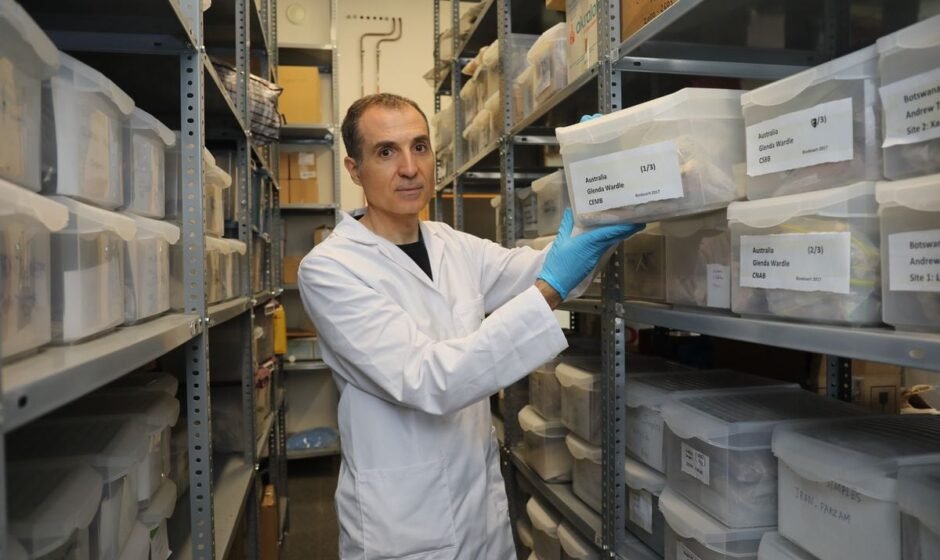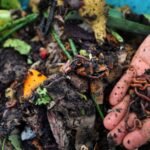Renowned Ecologist Fernando Maestre to Leave Spain for Saudi Arabia
Renowned ecologist Fernando Maestre, one of the world’s most influential scientists, is set to leave Spain for the King Abdullah University of Science and Technology (KAUST) in Thuwal, Saudi Arabia, according to a report confirmed by EL PAÍS. Maestre, currently a distinguished professor at the University of Alicante, is an international authority in the study of desertification and recently won a $2.7 million European grant. However, he will have to delay or decline the grant due to his move.
The 48-year-old Maestre, born in Sax, Alicante, expressed his gratitude to his alma mater for their support but cited the Spanish scientific system as a factor contributing to his departure. He mentioned the bureaucracy, lack of stable staff, constant need for funding, and excessive paperwork as challenges he faces. Maestre has requested a five-year leave of absence from the University of Alicante to relocate his family to Saudi Arabia.
KAUST was founded in 2009 in the desert with an initial funding of approximately $22 billion. The university boasts immense financial resources. While Maestre did not disclose his salary, he mentioned that it is “very competitive.” He also highlighted that he will have 15 times more research funding than what is typically available in Spain. In Alicante, Maestre led a team of up to 20 people, but he was the only one with a stable contract. In Saudi Arabia, a young researcher with a recently completed doctorate can earn a tax-free monthly salary of $5,400, along with other benefits such as an annual plane ticket and a free on-campus house. Four members of Maestre’s Alicante team will accompany him to Thuwal.
As a desert ecologist, Maestre sees Saudi Arabia as a unique opportunity to study hyper-arid zones. He believes that the challenges faced by the country are similar to those Spain will face in the future. Maestre won Spain’s National Research Award in 2002, presented by the Ministry of Science.
KAUST has attracted reputable scientists from around the world. Among the notable Spanish professionals it has recruited are chemist Jorge Gascón, who heads the university’s Catalysis Center; electronic engineer Mario Lanza, a microchips expert; and industrial technical engineer Érica Álvarez, who works in a nanomaterial laboratory. Despite criticism from fundamentalist groups, KAUST is the first mixed-gender campus in Saudi Arabia. The university offers a range of amenities, including teacher’s houses, stores, sports arenas, English-language schools for children, and even its own beach. Women are allowed to wear short sleeves.
Crown Prince Mohammed bin Salman, chairman of KAUST’s board of trustees, unveiled the university’s new strategy five months ago, emphasizing the transformation of research into innovations with economic benefits. While the prince has faced accusations of involvement in the murder of journalist Jamal Khashoggi, he aims for KAUST to become a beacon of knowledge and inspiration for the betterment of Saudi Arabia and the world.
Oceanographer Carlos Duarte, another recipient of Spain’s National Research Award, was one of the first scientists to join KAUST. Duarte recently celebrated his 10th year in Saudi Arabia and shared a photo of himself in traditional clothing on social media.
Saudi Arabia aims to have at least five of its universities ranked among the world’s top 200 by 2030. To achieve this, some institutions have resorted to paying foreign scientists to falsely declare their main place of work as a Saudi university. However, Maestre and other researchers have refused to participate in this deception. KAUST’s approach involves hiring top scientists, providing abundant resources, state-of-the-art laboratories, and salaries that surpass those offered in other countries.
Maestre has visited KAUST multiple times in recent months and is impressed by the university’s research and faculty. He believes the system at KAUST allows researchers to excel without the bureaucratic obstacles faced elsewhere.
In conclusion, Fernando Maestre’s move to KAUST represents a significant loss for Spain’s scientific community. His expertise in desertification and dedication to research will contribute to the advancement of knowledge at KAUST.




